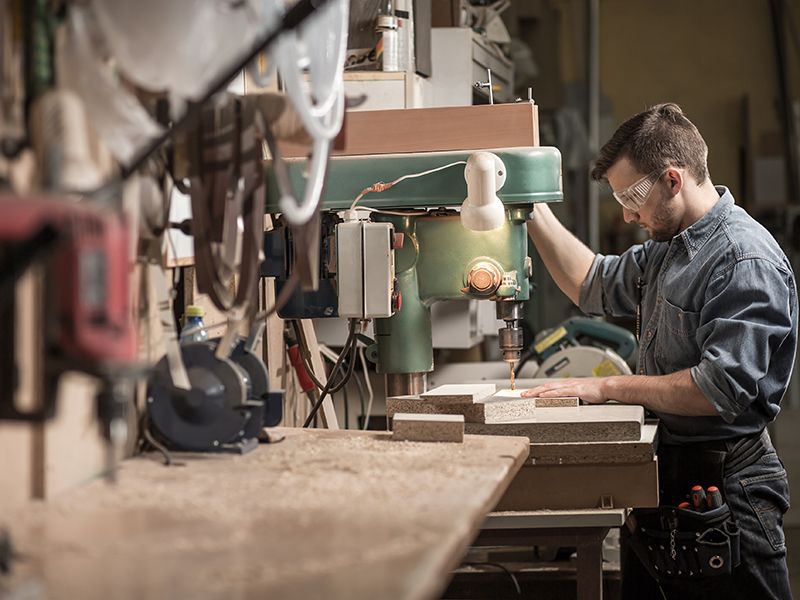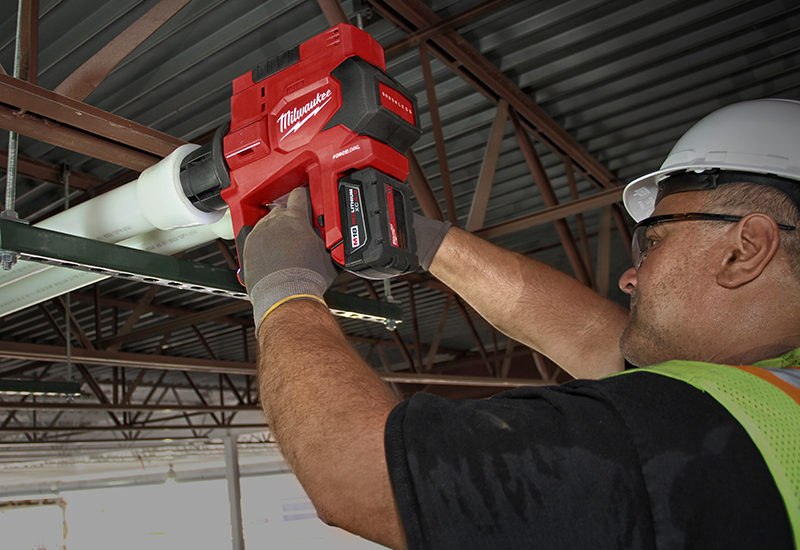While it’s always exciting to buy new woodworking bench tools, it’s just as exciting to see your favorite tools still functioning after years of regular usage. You get to know them inside and out. There are a few commonly overlooked ways to extend the life of your power tools, and their simplicity might surprise you. Do them consistently, and your tools will last longer than ever.
Cleaning Your Way to Longer Life
Surprising tip #1: Cleaning isn’t an optional convenience. It protects your tools from long-term damage.
You might wipe down your tools after you finish a job, but when’s the last time you gave your bench tools the care they really deserve? We’re not talking about buying a new blade or replacing a broken part. We’re talking about deep cleans with proper blade upkeep. Whether you use a drill press or a miter saw, your woodworking bench tool has several moving parts you need to remove for cleaning. This process doesn’t have to take long, and if you get into a habit of maintenance, you can quickly clean all the tools on your bench.
As with everything else in your wood shop, consider safety first. First, unplug whichever woodworking bench tool you want to clean, then you can remove its blade or bit and wipe the surfaces with a dry cloth. This removes debris from the surfaces of the tool and allows you to visually inspect components. Check for rust, and use a rust remover to clean up problem areas.
Wipe the blades and bits as well. These pieces may not last as long as the tool itself, but they’re vital to the speed and consistency of your work. Polish your blades, and use a soft wire brush to clean the area between each of the teeth. Check your tool’s belts, too. If any material fragments fall onto these belts, they can cause unnecessary friction that damages the whole system.
Surprising tip #2: Dust management systems help you fight grime for lifelong performance.
Dust management systems can help you speed up this process. With a few hoses and enough suction, your woodworking bench tools won’t kick as much dust into the air, and, consequently, won’t capture as much dust on their small components.
Limit Friction with Proper Lubrication
Surprising tip #3: Limit heat with proper lubrication. Keep your tools oiled, and they’ll last longer.
Friction causes some of the most frequent issues for woodworking bench tools. It slows gears and dries belts. The extra heat can cause long-term damage as well, but there’s good news: This is an easy problem to avoid. Lubrication is one of the most important factors of bench tool maintenance, and it’s one of the most commonly overlooked steps.
Check which type of oil to use for your tool, and then apply it around the moving parts. The oil does more than prevent friction. It prevents tiny dust particles from entering small crevasses, too. When you wipe down your woodworking bench tools, you can’t reach everywhere. Even if you use canned air, which can make a major difference when cleaning electronics, you won’t be able to blow out oily particles. Proper lubrication creates a barrier for this dust, so nothing gets trapped inside tight shafts and joints.
Develop a Habit for Bench Tool Maintenance
Cleaning and lubrication are both important, but they’re effective only if you develop a routine for both tasks. Frequent maintenance is the best way to extend the life of your bench tools. Get into the habit of cleaning your tools as soon as you finish using them, and your most important tools will last longer with fewer performance issues.
Surprising tip #4: Send your saw blades in for sharpening and get the most from every blade.
Maintenance also means blade sharpening and cord care. When you see that your chop saw blade has dulled, you can revitalize performance without buying a replacement blade. Most of these components can last for years, and you can extend their lives by taking them into your local retailer for sharpening. Unless you know what you’re doing, it’s usually best to take these to an expert. If you dull the blades with uneven sharpening, they may not perform as well (or last as long) as possible.
Surprising tip #5: Prevent accidental damage by hanging cords for storage.
Industrial power cords can take a beating, but they’re not impervious to damage. Cords left out in the shop not only get in the way of the work at hand, they’re also more likely to get snagged and pulled. If your tool doesn’t have a removable cord (and in some cases even if they do), an unexpected pull can destroy the power input. These issues can be expensive to fix, but they’re not hard to prevent. The way you wrap and store your cords can protect you from having to replace your tools early. Store your cords in a loose wrap, out of the way. Loose coils can hang from organization hooks, and they prevent tangles during storage.
Frequent cleaning and lubrication are some of the most effective ways to extend the life of your bench tools, but they’re not the only options. Take care of your blades and cords as well. These overlooked practices make a huge impact on overall performance. These tips are inexpensive, and they don’t take much time to accomplish. Want your tools to have a long life? Treat them like the powerful, complex systems they are.
View more Tool Tips




